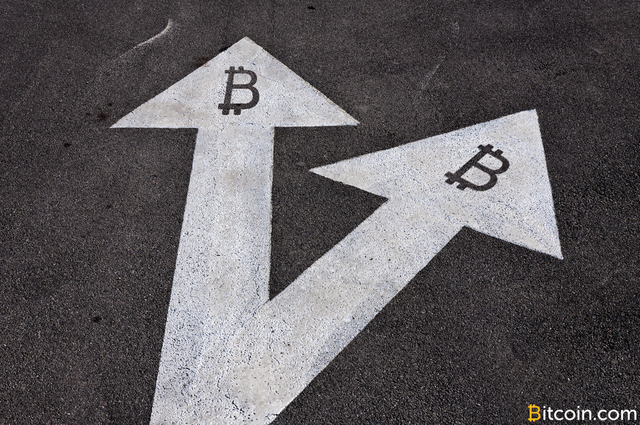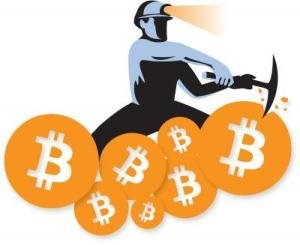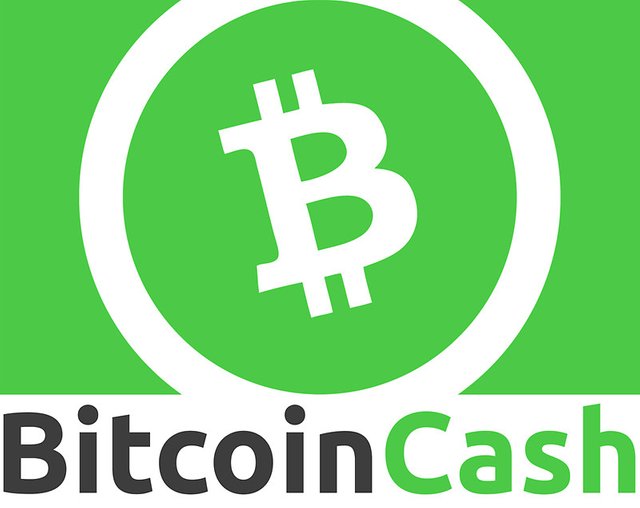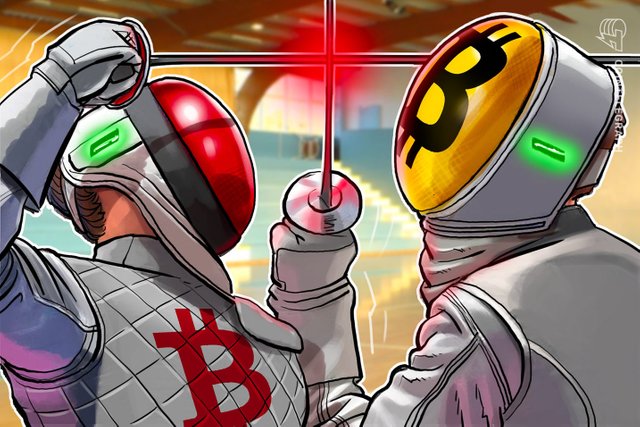What you should know about Bitcoin Cash possibly splitting on November 15th

[Bitcoin Cash Could Split Again]
One of the strengths of cryptocurrency like Bitcoin is its open, decentralized nature. The code itself is open source, as released by the anonymous "Satoshi Nakamoto" back in 2009. Anyone can "fork the code" - copy it and create their own cryptocurrency, tweaking the software however one wants. This has been done many thousands of times in the last decade and has resulted in an overwhelming number of cryptocurrencies, many of which are very interesting to speculate about but have very little real-life relevance. Bitcoin (BTC), far and away is still the king-of-the-hill of crypto.
In 2017, for the first time ever, a different kind of fork happened with Bitcoin. This one happened internally and contentiously. Some history: In 2017, Bitcoin's network was full of transactions, just like it is today. Similar to recent months, network fees then were rising dramatically as people looking to send transactions as quickly as possible bid up the fees to ridiculous levels. For instance, within the last week, I paid about $10 worth of BTC to send a transaction. This is CRAZY expensive for sending crypto, which shouldn't cost more than one or two cents or even less.
The Bitcoin programmers and community could not come to an agreement on how to scale up Bitcoin to meet demand and keep the fees low. One side offered a simple solution they said was Satoshi's original vision - increase the block size. The block size is a technical term describing the number of bytes maximum that a "block" can be when it's "mined" onto the "blockchain". The blockchain being the major innovation that makes Bitcoin such an important development - it's a public ledger of all the Bitcoin transactions that have occurred since the beginning. The blockchain is decentralized and distributed. There are thousands of copies of it across the world. This distribution is why Bitcoin cannot be taken down by world governments - it exists in too many places at once.
Anyway, when Satoshi created Bitcoin, there was no limit on block size. Later, Satoshi added a block size of one megabyte apparently without telling anyone. Satoshi later disappeared from public view and hasn't been seen since. Why did Satoshi add the limit? There is speculation, but apparently Satoshi never explained it. Regardless, it exists and some in the Bitcoin community say it should be raised. The larger the block size, the more transactions can be fit in a block, which are generally mined onto the blockchain roughly every ten minutes. More transactions per block means more transaction volume can be handled at once and therefore, lower network fees. Simple, right?

[Bitcoin mining doesn't actually look like this.]
Unfortunately, not everyone agreed. Another group was against the raising of the block size, instead proposing much more complex ideas including "Segregated Witness" and "Lightning Network" as solutions. I don't have the ability to explain them, so I won't try. Suffice it to say, they implemented "Segregated Witness" and its effect on the network fees was completely unremarkable. The much ballyhooed "Lightning Network" is still in development, so the jury is out on that. The two sides could not come to an agreement, so for the first time in its history, on August 1st of 2017, Bitcoin (BTC) had a "chain fork" aka "chain split" and Bitcoin Cash (BCH) was born. Instantly, everyone who had Bitcoin (BTC) also had the same amount of the then-new Bitcoin Cash (BCH). I prefer to call the event a schism however, because outside the technical aspects, from the human perspective, a chain split resembles a religious schism. Two groups of people, who previously agreed, come to irreconcilable differences, and go their separate ways. Whether political, sports, or crypto - human nature appears to be very tribal. For better or for worse.
Are we better off or worse off for having Bitcoin Cash (BCH) and Bitcoin (BTC)? It depends on your perspective. I think it would have been better if the BTC programmers just increased the block size, fixing the problem of the full network and the ridiculous fees. Unfortunately they would not do this, and so Bitcoin Cash had to happen. However, the increased competition has done nothing to get Bitcoin's programmers to fix the problem, meanwhile, network fees for sending Bitcoin (BTC) are on the rise - just like happened in 2017. Just one week ago, the average fee was over $10! As I write this, it's over $6. Most people buying Bitcoin (BTC) are unaware of the insane fees, because they are buying on sites like Coinbase and apps like Cash App and if they never move the funds off those platforms, they never experience the insane network fee, so to them it's an investment vehicle, not money.
In fact, this now-common viewpoint about Bitcoin (BTC) - that it is a "store of value" rather than "electronic cash" was not always the case and has been cultivated by its supporters in recent years. Satoshi's whitepaper was clear. Bitcoin was supposed to be electronic cash, which also is a store of value. For years, Bitcoin's network fees - paid by the sender - were no more than a penny's worth of BTC per transaction. There are some interesting theories that suggest old-money companies like Mastercard via its membership in the "Digital Currency Group" are funding key Bitcoin programmers by investing in a company called Blockstream, who put those programmers on its payroll several years ago, after which all the trouble started. Another investor of Blockstream is AXA Group, a massive global bank. Satoshi created Bitcoin to undermine the old money institutions like Mastercard and big bankers like AXA, but now they are funding its key developers?

[Which will be the "true" Bitcoin Cash?]
Whether its through a conspiracy to make Bitcoin less useful in the marketplace or just the inaction that sometimes can result from being the king-of-the-hill, Bitcoin has not been fixed. It's still broken due to network congestion driving up the fees. Bitcoin Cash (BCH) is a much more useful alternative than Bitcoin, primarily because its network fees are what they should be, around one cent's worth of BCH. Of course, plenty of cryptos have low fees, like DASH, but Bitcoin Cash has had the staying power to keep in the top ten while DASH - once as high ranked as #5 by market cap, has fallen down the charts.
Unlike DASH, however, Bitcoin Cash's existence so far - behind the scenes - has been somewhat dramatic. DASH has never had a chain split, but Bitcoin Cash had its first in November of 2018, just over a year after it came into existence as I described above. Bitcoin Cash has regular upgrades every six months that require a "hard fork" of the currency. A "hard fork" means that all users must upgrade their software to continue to use the network, whereas a "soft fork" is a software upgrade that is optional and backwards-compatible with previous versions. Hard forks are an ideal time for disagreeing parties to attempt a chain split and create a new competitor and so in November 2018, a group led by an Australian man claiming - without evidence - to be Satoshi Nakamoto, decided they were going to have themselves a schism and "Bitcoin Satoshi's Vision" aka Bitcoin SV (BSV) was created from the Bitcoin Cash chain. This was the first time Bitcoin Cash had a schism of its own. However, it may not be the last.
I apologize for all the backstory, but I feel it's necessary to tell it in that detail to bring new users up to speed on why things are happening. This electronic cash is like nothing we've ever seen before and there is a learning curve. As a founder of Bitcoin Embassy New Hampshire, I don't want people to be in the dark if they don't want to be, and a little bit of knowledge is useful to those willing to learn. Sure, you can ignore all this stuff and probably everything will be fine, but there is a chance of some confusing things happening, and so we bring our story to the current day:
Two years after Bitcoin Cash schisming into Bitcoin Cash (BCH) and Bitcoin SV (BSV), Bitcoin Cash is once again facing another looming chain split on November 15th. Plus, it's looking like the possible drama-factor could be higher than ever. What's happening this time? Bitcoin Cash's most visible programmer, Amaury Sechet, has called for an "upgrade" to send 8% of the mining rewards to the Bitcoin Cash programmers. Mining rewards go to the miner who successfully "mines" a given block to the blockchain. The rewards are currently made up of the 6.25 BCH "block reward" that are "mined" into existence with each block and the total amount of transaction fees collected for that block's transactions. Normally miners keep 100% of the mining rewards, but Sechet's proposal changes that to 92%. So far, the miners who are currently mining are signalling their opposition to the planned "upgrade", so there's a chance it won't get off the ground and nothing will change.

[Cointelegraph's Artist's Interpretation of a Bitcoin Hash War]
However, the supporters of the 8% programmers' fee could turn on a bunch of mining power on the day of the possible split and then it could actually happen. The supporters of the 8% fee are being referred to in various places as "Bitcoin Cash ABC" (BCHA) and they have their own software. The opposition, who are running different software, are referred to frequently as "Bitcoin Cash Node" (BCHN). Neither of those names are particularly catchy, but the important thing to note here, is both of these camps are going to be fighting over the name "Bitcoin Cash". Because crypto is decentralized, it will be up to the market to decide. In recent days, various exchanges and other cryptocurrency service providers have been announcing their plans on how they will be handling the possible schism. As you might imagine, it's a patchwork. Many are preemptively choosing a winner and siding with BCHN. Others are saying they will be watching the situation closely and awarding the "Bitcoin Cash" (BCH) moniker and ticker symbol to whichever chain wins the mining "hash war" that could occur, based on various factors.
It wasn't really a big deal when Bitcoin SV split off from Bitcoin Cash, as Bitcoin SV never tried to call itself "Bitcoin Cash", so as confusing as chain splits are to the new user, at least there wasn't confusion in naming. Now with two competing groups vying for the Bitcoin Cash name, the potential for confusion is very high. So what can you do if you have Bitcoin Cash (BCH)? Here are some possible options:
- Do nothing. If the chain splits, some wallets will support both chains. A chain split means whatever amount of BCH you have at the time of the split, you'll get the exact same amount of the newly split coin, whatever your wallet decides to call it. Unless your wallet won't be supporting one of them, in which case you technically still have the new coins, but may have to move your balance to a wallet that is supporting the split to see both balances.
- Sell off your BCH and avoid the whole thing. If you sell before the possible split, you avoid any drama but also avoid the possible benefit of having both new BCH competitors after the possible split.
- Move all your BCH to the same wallet. If you're expecting a chain split and have BCH in more than one wallet, you may want to move it all together to the same wallet before the 15th, preferably a wallet that is planning to support both coins.
- Move all your BCH to an exchange. Note, it's risky to hold crypto on an exchange. That said, if you want to get both coins at the time of the possible schism and have the immediate ability to trade away the coins you don't want, you ought to send your BCH to an exchange that will be supporting both split coins, like Coinex.
Whatever you decide to do, you may want to do it before November 15th as many wallets, exchanges, and other services will be freezing all BCH transactions as November 15th gets closer, in preparation for the possible schism. Also, if the chain split occurs and a new BCH competitor is born, the new coin will not have what is called "replay protection" and the "replay attack" will be possible. This makes it dangerous to send BCH transactions until wallet providers can update their software to ensure safety or until the coins themselves add replay protection. It would be wise to be patient after a chain fork, don't move your funds, and stay connected to the crypto community to learn more as it develops.
If you're in the Monadnock region of New Hampshire, please join our Telegram chat and our Meetup group. If you have any questions it's always a good idea to crowdsource the answers as in situations like this, opinions can range. No one is an expert and no one can predict what might happen.
I hope you found this article informative and thank you for reading this far. Good luck with the fork - if it even happens!